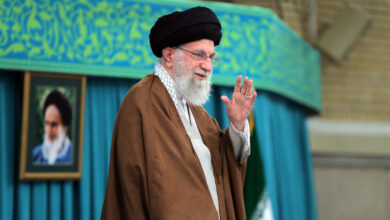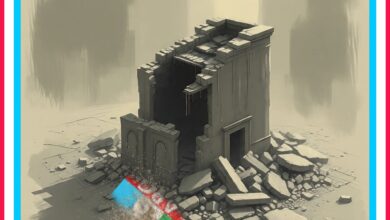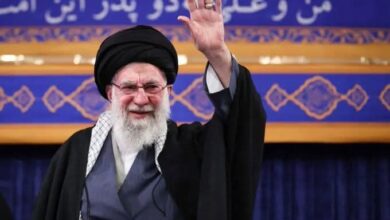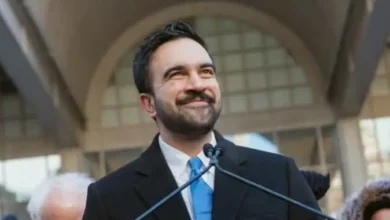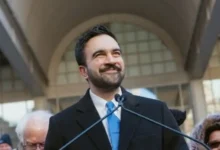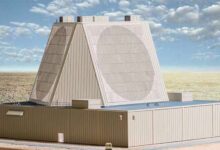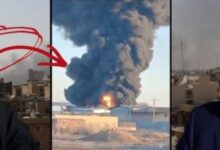‘I inherited near-empty treasury,’ Tinubu eventually speaks
*As media reports show claims of empty treasury are subjective
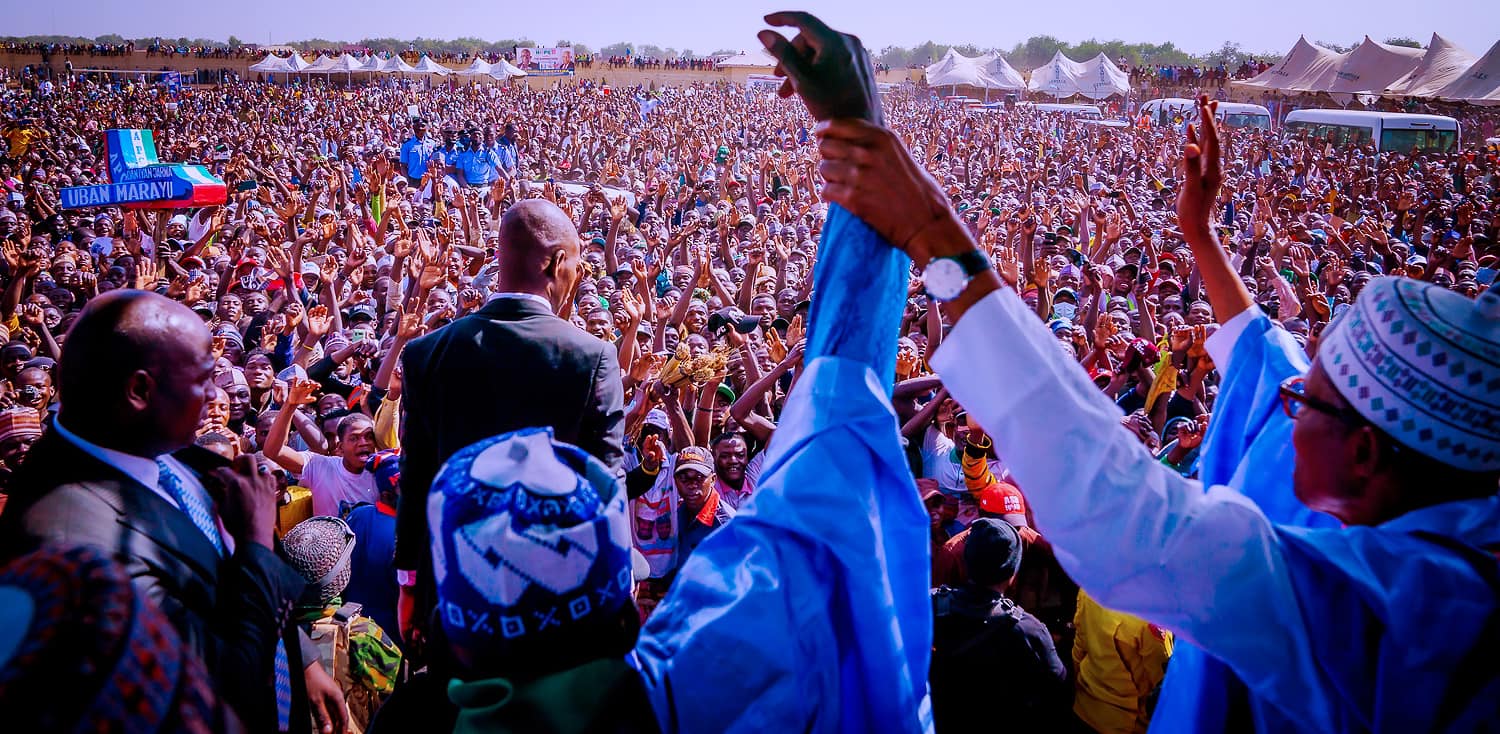
By KEMI KASUMU and OUR REPORTERS
Some international media and citizens of the country, however, have been proving Tinubu and his government wrong on their claims, saying they cannot rightly claim that Buhari caused the hardship Nigerians are facing, as his own hurriedly announced policies of fuel subsidy removal and naira floating caused it.
President Bola Ahmed Tinubu, on Thursday May 8, 2025, stated that his administration inherited a “near-insolvent” treasury and a chaotic economic structure upon assuming office in 2023.
But he said that he has since implemented bold and painful reforms that are beginning to yield results.
The DEFENDER in some of his past reports had said that Tinubu’s government members including the National Security Adviser (NSA) and some All Progressives Congress (APC) governors had been saying that his predecessor, Muhammadu Buhari, left behind for him a bankrupted economy, thus pushing blames for the hardship the country has faced since he came to office in May 2023 on the former leader.
Particularly, People’s Gazette online newspaper, in its report of Ribadu reported the NSA as saying Buhari looted the economy that Tinubu had no money to run the country and his boss the then new president did deny the Ribada’s serious allegation against his then very recent predecessor.
Nigerians, however, hit back at the Tinubu administration, asking the to stop complaining but fix the economy. Among them were Catholic bishops who said it was actually Tinubu’s policies that were pushing millions of Nigerians into poverty.
In what some Nigerians described as taking side with his fellow Yoruba man in power, former Ogun State Governor Chief Olusegun Osoba was reported in the news, specifically Daily Trust as inheriting an empty treasury from Buhari.
Special Adviser to the President on Information and Strategy Bayo Onanuga too had his own pound of the accusation on the same former president, Buhari, President Tinubu has been sending emissaries to over his re-election in 2027 to prevail on his Congress for Progressive Change (CPC) bloc in the APC not to leave the party.
While Buhari told them that he remains with APC, he however declined to interfere in the choice of anybody with regard to their future political choices.
Tinubu’s Thursday explosive, in the general view of some citizens, is view as a direct confrontation to his predecessor since he could not get his assurance to stop the CPC members from leaving, an assurance he appears to be getting from the likes of Anambra State Governor Charles Chukwuma Soludo, who promised the collaboration of his All Progressive Grand Alliance (APGA) to deliver Anambra for him in 2027.
The DEFENDER reports that former President Muhammadu Buhari, however, neither responded or traded words with the successor nor allowed any member of his camp or aides to do so, not even now that the president has come out of his shell to accuse him openly of leaving behind for him a bankrupted economy.
Some international media and citizens of the country, however, have been proving Tinubu and his government wrong on their claims, saying that they cannot rightly claim Buhari caused the hardship Nigerians are facing as his own hurriedly announced policies of fuel subsidy removal and naira floating caused it.
The idea of running the Nigerian Federal Government propaganda by Tinubu has continued to be described by citizens as an act that is though worrisome but has a short and expiry date.
Speaking during a state visit and grand reception in Awka, the Anambra State capital, Tinubu defended his economic reforms considered by many locally and internationally as hatch, saying the financial state of the nation was dire when he took over, citing massive public debts, “unsustainable multiple subsidies,” and an unstable foreign exchange regime.
“We met near-insolvent public finance, a decades-old monster of unsustainable multiple subsidies, a chaotic and debilitating forex regime,” the President declared.
“Just as we tamed the Atlantic in Lagos, many of these monsters have been tackled,” he said.
This marks one of Tinubu’s strongest public acknowledgements yet of the fiscal challenges he inherited from his predecessor, former President Muhammadu Buhari, under whose administration public debt ballooned, subsidy spending soared, and inflation worsened.
Despite the rising cost of living and widespread discontent with subsidy removal and currency devaluation, Tinubu insisted that the reforms were inevitable and have begun to restore macroeconomic stability.
“These reforms are difficult, yes, but inevitable,” he said.
“Courage and our collective action were required to confront them in order to lay a strong foundation for a more stable, prosperous, and inclusive economy.”
The President, who was on his first official visit to Anambra since assuming office, commissioned major infrastructure projects undertaken by Governor Chukwuma Charles Soludo, including the Solution Fun City and the new Government House mini-city.
He praised Soludo’s vision of transforming Anambra into an “African-Dubai-Taiwan-Silicon Valley” and stated that the federal government would continue to support the state, particularly in the areas of security, infrastructure, and investment in technology and manufacturing.
Tinubu also noted that his administration had renegotiated and passed a new minimum wage law to cushion the impact of the reforms on workers. He commended the Anambra State Government for implementing and even exceeding the national minimum wage benchmark.
In an emotionally charged moment, the President was conferred with a new chieftaincy title by all traditional rulers in Anambra.
He described the honour as historic and joked that he now considers himself a “bona fide son of the soil”, urging Governor Soludo to allocate him land for a retirement home in the state.
The visit comes at a time of heightened scrutiny of Tinubu’s economic agenda, with many Nigerians grappling with high food prices, fuel costs, and weakened purchasing power.
Nonetheless, the President maintained that investor confidence is rising and opportunities are expanding, particularly in agriculture, digital innovation, and small-scale enterprise.
“Let us be patient. We have no other country but Nigeria. We must make it great,” he concluded.


